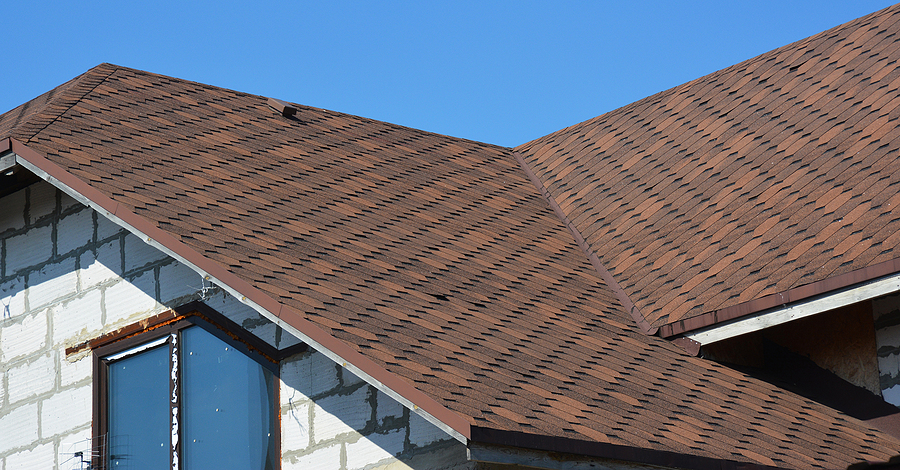
Choosing the Right Roofing Contractor for Your Home: Tips and Considerations
Choosing the right roofing contractor for your home can be a daunting task. Your roof is one of the most important components of your home, protecting you and your family from the elements. A well-maintained roof can also add value to your home. Therefore, it is important to choose a qualified and trustworthy roofing contractor who can perform quality work. In this blog post, we will discuss tips and considerations for choosing the right roofing contractor for your home.
Check for Proper Licensing and Insurance
The first step in choosing the right roofing contractor is to check for proper licensing and insurance. A reputable roofing contractor should have the necessary licenses and insurance to protect you and your home from liability. You can check with your state or local licensing board to verify the contractor’s credentials.
Look for Experience and Expertise
Experience and expertise are important factors to consider when choosing a roofing contractor. Look for a contractor who has experience working on roofs similar to yours and who is knowledgeable about the materials and methods used in roofing. A contractor with a strong reputation in the community can also be a good indicator of their experience and expertise.
Ask for References and Reviews
When considering a roofing contractor, ask for references and reviews from previous customers. This can provide valuable insight into the contractor’s quality of work, customer service, and reliability. Look for reviews on the contractor’s website, social media pages, and other online platforms.

Get Multiple Estimates
To ensure that you are getting a fair price for your roofing project, it is important to get multiple estimates from different roofing contractors. Compare the estimates to determine which contractor is offering the best value for your money. Be wary of contractors who offer extremely low estimates, as this can be a red flag for poor quality work.
Review the Contract Carefully
Before hiring a roofing contractor, review the contract carefully to ensure that all of the details are clear and agreed upon. The contract should include a detailed scope of work, pricing, payment terms, and timelines. If any changes are made to the contract during the course of the project, make sure to get them in writing.
Choosing the right roofing contractor for your home requires careful consideration of factors such as proper licensing and insurance, experience and expertise, references and reviews, and pricing. By doing your research and asking the right questions, you can find a qualified and trustworthy roofing contractor who can perform quality work on your home. Remember to review the contract carefully and communicate clearly with the contractor throughout the project to ensure a successful outcome.
Budgeting For a New Roof: Labor, Roof Types, and Fees
Budgeting for a new roof can be a challenging task, as the cost can vary depending on the size and complexity of the roof, as well as the materials used. Here are some tips to help you budget for a new roof:
- Determine the Size and Complexity of Your Roof: The first step in budgeting for a new roof is to determine the size and complexity of your roof. This will impact the amount of materials and labor required for the project, and therefore the cost.
- Research the Average Cost of Labor: Labor costs for a new roof can vary depending on your location and the complexity of the project. On average, labor costs for a new roof can range from $3 to $5 per square foot.
- Determine the Cost of Roofing Materials: Roofing materials can also vary in cost depending on the type and quality of materials used. Asphalt shingles are a popular and cost-effective option, with an average cost of $1 to $4 per square foot. Metal roofing is a more expensive option, with an average cost of $5 to $15 per square foot.
- Consider Additional Fees: In addition to labor and materials costs, there may be additional fees for permits, disposal of old roofing materials, and any necessary repairs to the roof deck or structure. Be sure to factor these additional fees into your budget.
- Get Multiple Estimates: To ensure that you are getting a fair price for your new roof, it is important to get multiple estimates from different roofing contractors. Compare the estimates to determine which contractor is offering the best value for your money.

Budgeting for a new roof requires careful consideration of factors such as the size and complexity of your roof, labor and materials costs, additional fees, and estimates from roofing contractors. By doing your research and obtaining multiple estimates, you can ensure that you are getting a fair price for your new roof. Remember to factor in any additional fees and consider the long-term benefits of high-quality materials and professional installation.
Choosing the Right Type of Roofing
When it comes to choosing the right type of roofing for your home, there are several factors to consider, such as durability, energy efficiency, and aesthetic appeal. Here are some popular roofing options and their pros and cons to help you make an informed decision:
Asphalt Shingles:
Asphalt shingles are a popular and cost-effective option for residential roofing. They come in a variety of colors and styles, making them a versatile option for many homes. However, they may not be as durable as other roofing materials and have a shorter lifespan of around 20 to 30 years.
Metal Roofing:
Metal roofing is a durable and long-lasting option for residential roofing. It is energy-efficient, reflecting the sun’s heat and helping to reduce cooling costs in the summer. Metal roofing is also available in a variety of styles and colors, and can last up to 50 years or more. However, it is a more expensive option and may not be suitable for all types of homes.
Clay or Concrete Tile:
Clay or concrete tile roofing is a popular option for homes with Spanish or Mediterranean-style architecture. They are durable and long-lasting, with a lifespan of up to 50 years or more. However, they are a heavy roofing material and may not be suitable for all types of homes. They can also be more expensive than other roofing options.

Wood Shingles or Shakes:
Wood shingles or shakes are a popular option for homes with a rustic or natural look. They are a renewable resource and can last up to 30 years with proper maintenance. However, they are more susceptible to fire and insect damage and may require regular maintenance to prevent rot and decay.
Slate Roofing:
Slate roofing is a high-end and long-lasting option for residential roofing. It is durable and can last up to 100 years or more. It is also fire-resistant and low-maintenance. However, it is a more expensive option and may require additional support for the weight of the slate.
Choosing the right type of roofing for your home requires careful consideration of factors such as durability, energy efficiency, and aesthetic appeal. By exploring the options available and working with a professional roofing contractor, you can choose an optimal roofing material that provides reliable and efficient protection for your home. Remember to consider the long-term benefits and costs of each option to ensure a successful outcome.


I appreciate the advice to check references and read reviews from prior clients while looking at roofing contractors so that you can learn more about their services. I’ll be sure to share this with my cousin to keep in mind. I’ll look into commercial roofing services since she needed to remedy the roof leak at her restaurant.